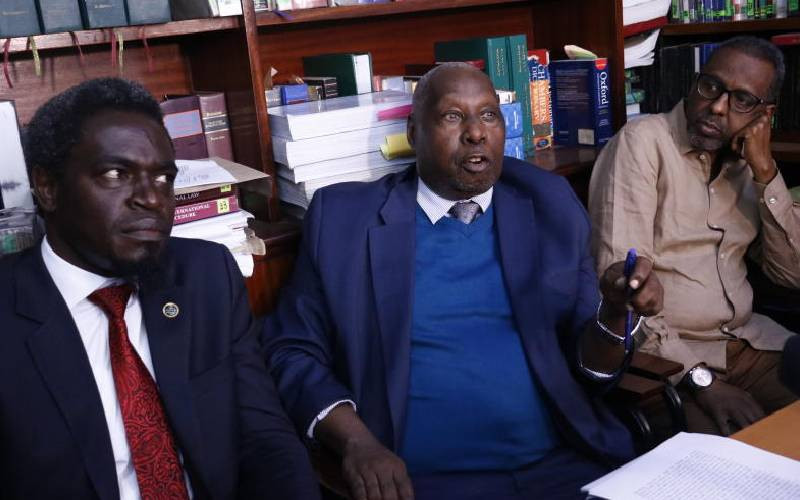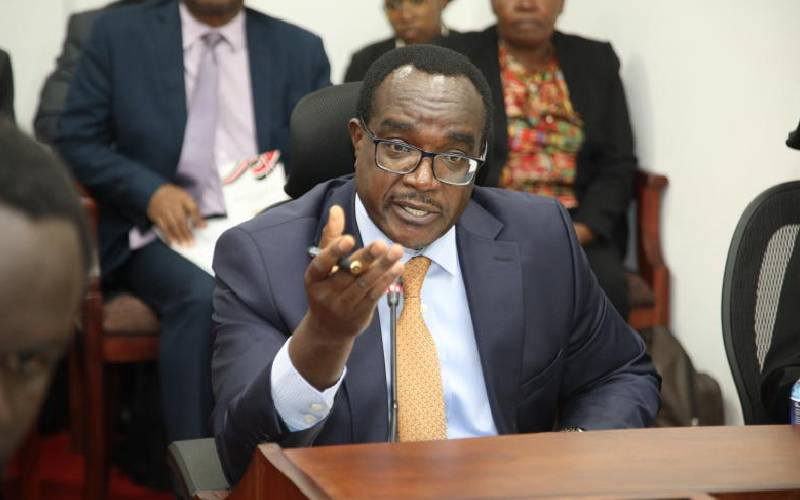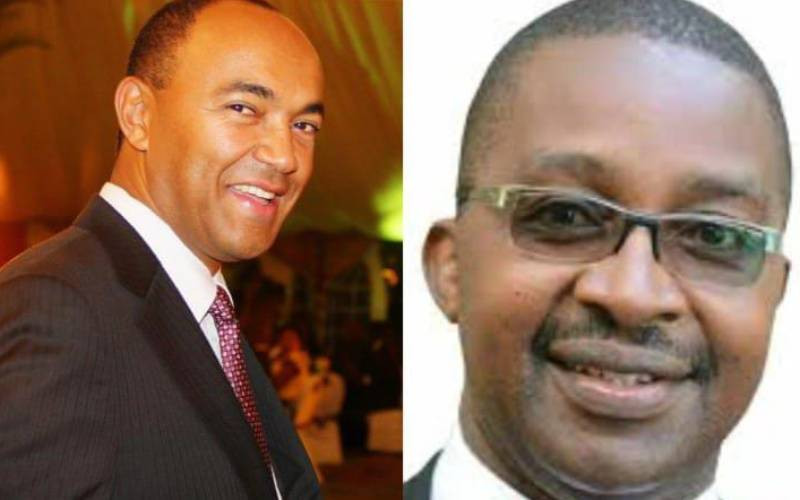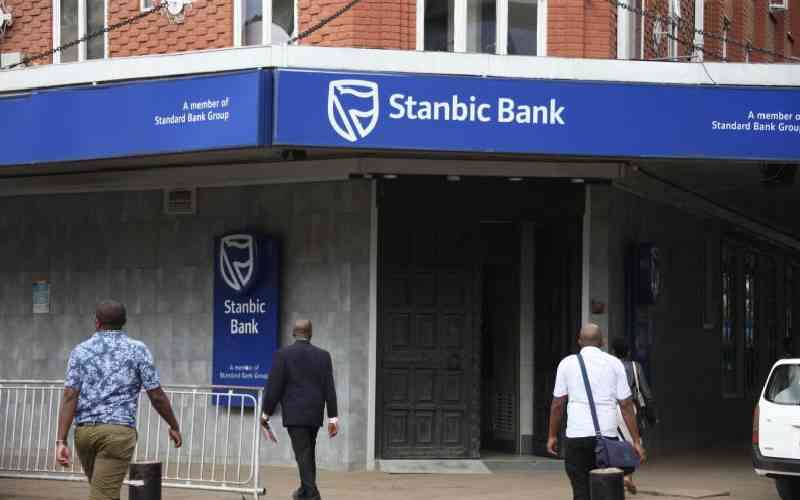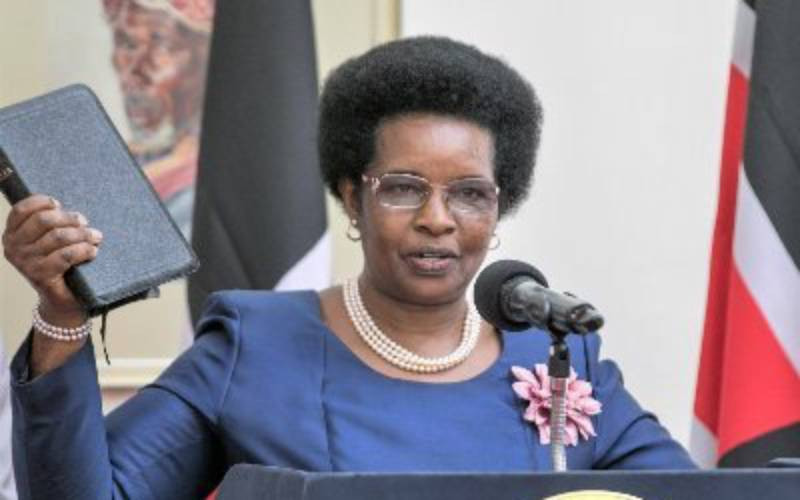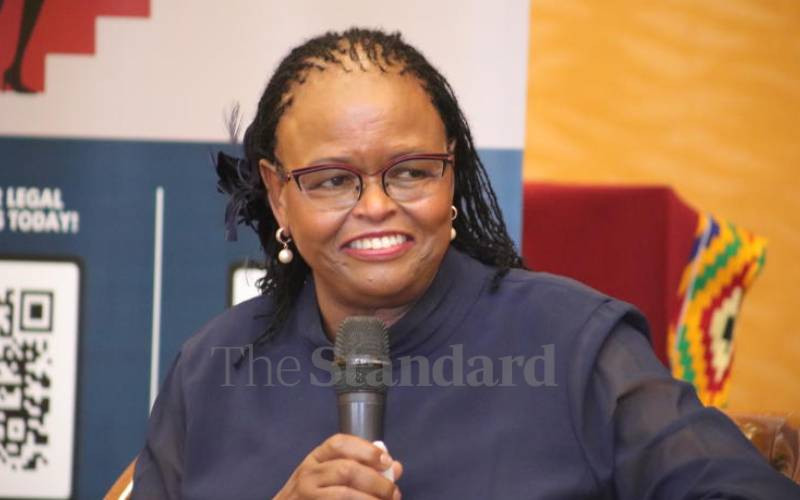
A three-judge bench has been appointed to hear an application by a Mombasa businessman who wants the powers of banks to sell borrowers' property over defaulted loan checked.
The judges appointed by Chief Justice Martha Koome to hear the application by Andrew Kandie are Justices Olga Sewe, Gregory Mutai and Dennis Magare.
Kandie's application challenging the statutory powers of the banking institutions in Mombasa will come up for mention today for direction.
Kandie went to the high court two months ago seeking orders to have the matter heard in a constitutional court presided by a three-judge bench. He said every Kenyan has a right to be heard in court before any decision is made against them.
Kandie said it is wrong for the lenders to continue exercising powers to sell borrowers' property such as land whose title deeds were used as security for loans without giving the defaulters an opportunity to defend themselves.
He has sued the Co-operative Bank of Kenya and the Kenya Bankers Association.
"The constitution says every Kenyan has a right to be heard but in the case of banks they have powers to make decisions to auction borrowers' property without being given an opportunity to be heard," said Kandie.
The trader went to court three months after he got a notice from Co-operative Bank demanding Sh26 million for failing to repay Sh1.6 million he borrowed in 2019.
Lawyer Gikandi Ngibuini representing Kandie says the sweeping powers of banks to decide the amount a borrower has to pay in case of defaulting has to be checked.
He insists the banks have been acting unconstitutionally because the constitution provided that every Kenyan has a right to be heard before being condemned.
He added that when one has defaulted on the loan, the banks always issue a notice after calculating the amount they want from the borrower without giving him an opportunity to be heard.
Kandie said such decisions are discriminatory and that was why he moved to court to seek redress.
The lawyer said since the borrowers cannot dispute any figure the banks give to the borrowers after defaulting the courts should give an interpretation.
Ngibuini said banks are given preference, which is tantamount to discrimination in which other institutions have to go to court when there is a dispute.
He said even the Kenya Revenue Authority (KRA) which is a government institution collecting revenue cannot issue anybody with a notice to auction their property unless there is a court order. He said his client wanted the auctioneer stopped because the plot was used as security to borrow Sh1.6 million from the Co-operative Bank of Kenya.
He said the constitution does not recognise banks as a body where primary disputes are to be resolved in banking halls and therefore the matter should have been dealt with in the courts.
"By allowing banking institutions to determine the quantum of a loan despite objection by the borrowers and by allowing the banks to determine the value amount one is supposed to pay back without involving the borrower is contravening the Banking Act articles 48,49 and 50," said Ngibuini.
He said the Co-operative Bank had no right to sell the borrower's land.
Kenya Law Reform Commission has been enjoined in the suit as an interested party as it is the body in charge of law reforms to ensure banks align themselves and conform with the constitution.
 The Standard Group Plc is a multi-media organization with investments in media platforms spanning newspaper print
operations, television, radio broadcasting, digital and online services. The Standard Group is recognized as a
leading multi-media house in Kenya with a key influence in matters of national and international interest.
The Standard Group Plc is a multi-media organization with investments in media platforms spanning newspaper print
operations, television, radio broadcasting, digital and online services. The Standard Group is recognized as a
leading multi-media house in Kenya with a key influence in matters of national and international interest.


